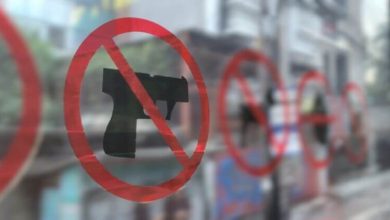Making Our Rights Disappear: The Authoritarian War on Due Process

This article was originally published by John W. Whitehead and Nisha Whitehead at The Rutherford Institute.
“If Trump can disappear them, he can disappear you. The Trump regime is already targeting immigrants who are here legally simply because they expressed opinions that Trump disagreed with. What makes you think he’ll stop there? With no court to verify anything the Trump regime alleges, you could be arrested and sent to a prison in El Salvador for having views the regime dislikes.”—Robert Reich
Imagine this: You’re rounded up in the dead of night by government agents, arrested, and sent to a detention center. The arresting agents don’t identify themselves, nor do they provide any documentation indicating why you are being detained. Nevertheless, without your family or friends knowing that you have been taken hostage, without anyone knowing where you are being transported or why, and without any opportunity to defend yourself or proclaim your innocence, you are flown out of the country to a foreign prison in a police state where you will have no rights whatsoever.
There can be no understating the danger.
The war on due process is here.
No trials. No hearings. No rights. Just indefinite detention and secret deportations.
This is the fate that awaits every one of us, not just immigrants (legal or otherwise), if the government’s war on the Constitution remains unchecked.
As historian Timothy Snyder warns, “If you accept that non-citizens have no right to due process, you are accepting that citizens have no right to due process. All the government has to do is claim that you are not a citizen; without due process you have no chance to prove the contrary.”
More than two decades after the U.S. government in its post-9/11 frenzy transported individuals, some of whom had not been charged let alone convicted of a crime, to CIA black sites (secret detention centers located outside the U.S. authorized to torture detainees) as a means of sidestepping legal protocols, the Trump Administration is using extraordinary rendition to make those on its so-called “enemies list” disappear.
The first round of arrests and deportations to a mega-prison in El Salvador supposedly targeted members of the infamous Venezuelan gang Tren de Aragua.
“Nazis got better treatment under the Alien Enemies Act than has happened here,” declared U.S. Circuit Judge Patricia Millett. “Y’all could have put me up on Saturday and thrown me on a plane, thinking I’m a member of Tren de Aragua and giving me no chance to protest it and say somehow it’s a violation of presidential war powers.”
Carried out with little evidence and without court hearings or due process, these roundups reportedly may also have swept up individuals with no apparent connection to gang activity apart from common tattoos (firearms, trains, dice, roses, tigers and jaguars) and other circumstantial evidence.
In a particularly Kafkaesque explanation for why some of the Venezuelan migrants who have no criminal records were targeted for arrest and deportation, government lawyers argued in court that their lack of a criminal record is in itself cause for concern.
In other words, the government is prepared to preemptively arrest and make people disappear, without any regard for legal protocols or due process, based solely on the president’s claim that they could at some point in the future pose a threat to national security.
This takes pre-crime and preemptive arrests to a whole new sinister level of potential abuses.
Are you starting to sense how quickly this could go off the rails?
This is how democracies collapse. This is how rights disappear overnight.
As lawyers challenging the government’s overreach warned, “If the President can designate any group as enemy aliens under the Act, and that designation is unreviewable, then there is no limit on who can be sent to a Salvadoran prison, or any limit on how long they will remain there. At present, the Salvadoran President is saying these men will be there at least a year and that this imprisonment is ‘renewable.’”
Also among those in danger of being made to disappear without any legal record or due process are individuals who have not been charged with or convicted of any crimes.
The most egregious of these incidents involve college students, scientists and doctors, all of them legal permanent residents of the U.S. who, while never having been charged with a crime, are accused of threatening national security by taking part in anti-war protests over the growing death toll in Gaza as a result of the Israeli-Hamas war, or sympathizing with the Palestinians, or being associated with someone who might sympathize with the Palestinians.
When merely exercising one’s right to criticize the government in word, deed or thought is equated to an act of domestic terrorism, we are all in trouble.
Whether those being rounded up and deported have done anything criminally wrong is not the point. That’s what the courts and the Constitution are for: to ensure that justice is served through due process and the right of the accused to have their day in court.
It’s not always a perfect system, but it is better than the alternative, which is outright tyranny.
The mass arrests and roundups thus far have been so haphazard that there is a very real likelihood that innocent individuals have also been swept up and deported.
American citizens could very well be next in line for this kind of treatment.
Native Americans, who are also American citizens, have reported being subjected to racial profiling by ICE agents and targeted because of their race or skin color.
Another American citizen detained and questioned by ICE during an immigration raid of a workplace in New Jersey is a military veteran who “suffered the indignity of having the legitimacy of his military documentation questioned.”
As Foreign Policy magazine warns, “The American people must be clear-eyed about the prison system to which their government is sending deported migrants—which, in the worst-case scenario, could one day hold U.S. citizens, too. Although U.S. law prohibits the deportation of U.S. citizens, the Trump administration has shown a repeated proclivity to flout the rules and ignore judicial orders.”
Indeed, it appears that President Trump is borrowing heavily from the lockdown script used by Nayib Bukele, president of El Salvador, another police state characterized by arbitrary detentions, systemic violations, brutality, and censorship, which has been under a permanent state of emergency since 2022.
Yet as Amnesty International warns, “‘Security’ at the expense of human rights,” increased militarization, and armed repression coupled with “efforts by state agents to stigmatise human rights organisations and the free press and to thwart their efforts, has fostered a climate of fear and intimidation that stifles civil society and spurs self-censorship.”
Under Bukele, who used a war on gang violence as the pretext for seizing power, constitutional rights have been suspended, with attorneys general fired, judges replaced by loyalists, the legislative and judicial branches coalesced under one party, presidential term limits set aside, innocent individuals swept up in mass arrests, Bitcoin declared legal currency, and friendly overtures made to Russia and China.
Sounds unnervingly familiar, doesn’t it?
This is the danger of allowing any president to use expansive wartime powers to bypass the Constitution’s prohibitions against government overreach and abuse. Suddenly, everything that challenges the government’s authority becomes a national security threat and every dispute a national emergency.
Through his use of executive orders, proclamations and so-called national emergencies, President Trump has essentially declared war on the rule of law.
Make no mistake: while immigrants, illegal and legal alike, have largely been the first victims of the Trump administration’s efforts to circumvent the Constitution in order to make them disappear, it’s our very freedoms that are being made to disappear.
At the heart of these freedoms is the right of habeas corpus.
Translated as “you should have the body,” habeas corpus is a legal action by which those unlawfully imprisoned can seek relief from their imprisonment.
Derived from English common law, habeas corpus first appeared in the Magna Carta of 1215 and is the oldest human right in the history of English-speaking civilization. The doctrine of habeas corpus stems from the requirement that a government must either charge a person or let him go free.
Without habeas corpus, other rights become vulnerable to executive overreach.
The Framers of the Constitution, having experienced first-hand what it was like to be labeled enemy combatants, imprisoned indefinitely and not given the opportunity to appear before an impartial judge, were acutely aware of the potential for government tyranny. Thus, they enshrined the writ in Article I, Section IX, of the Constitution, rather than the Bill of Rights, underscoring its fundamental importance as a safeguard against arbitrary detention and ensuring its protection at the federal level.
It has all been downhill since then.
History has shown us the dangers of unchecked executive power. Lincoln’s suspension of habeas corpus during the Civil War led to mass arrests without trial, setting a dangerous precedent.
Decades later, the internment of Japanese Americans during World War II demonstrated how easily fear can be weaponized to justify the imprisonment of innocent people.
Each time habeas corpus has been weakened, it has taken years—sometimes generations—for justice to be restored, if ever.
We cannot afford to repeat these mistakes.
While the Constitution allows the writ of habeas corpus to be suspended in cases of rebellion or invasion when public safety is imperiled, the Trump Administration’s efforts to keep the nation in a permanent state of emergency in order to justify its power grabs leaves “we the people” subject to the kinds of arbitrary mass round-ups, arrests and deportations that have been favored by despots and dictators.
This is usually where the self-righteous defenders of Trump’s blatantly unconstitutional tactics insist that the protections of the Constitution only apply to U.S. citizens.
They are wrong.
At a minimum, as the U.S. Supreme Court has affirmed, the rights enshrined in the first ten amendments to the Constitution apply to all people in the United States, regardless of their citizenship or immigration status. Those rights include free speech, peaceful protest and criticism of the government, assembly, religious freedom, equal protection under the law, due process, legal representation, privacy, among others.
Then again, what good are rights if the government doesn’t respect them?
What good are rights if the president is empowered to nullify them whenever he wants?
For that matter, what good is a government that betrays its own citizens?
When not even citizenship is protection against the abuses of an authoritarian regime, it’s time to do what our forefathers did when they finally got fed up with being silenced, censored, searched, frisked, threatened, and arrested: revolt against the tyrant’s fetters.
History has shown us that when governments operate without checks and balances, tyranny follows. The question is not whether mass arrests and indefinite detentions could be expanded to American citizens—it’s how long before they are.
If we allow the erosion of due process, if we accept that a president can unilaterally decide who is a threat without oversight, then we have already lost the freedoms that define us as a nation.
This is not just about immigrants.
It’s about every American who values liberty over unchecked power.
We must demand accountability. We must challenge policies that violate constitutional protections. We must support organizations fighting for civil liberties, educate ourselves on our rights, and refuse to be silenced by fear. Because when the government starts making people disappear, the only way to stop it is by making our voices impossible to ignore.
As I make clear in my book Battlefield America: The War on the American People and in its fictional counterpart The Erik Blair Diaries, freedom does not die in a single act of repression—it dies when the people surrender their rights in exchange for false security.
History will judge how we respond. We must act before it’s too late.
The Constitution can’t protect us if we don’t protect it.
The time to resist is now. Otherwise, if we don’t stand up for freedom while we still can, we may not get another chance.







